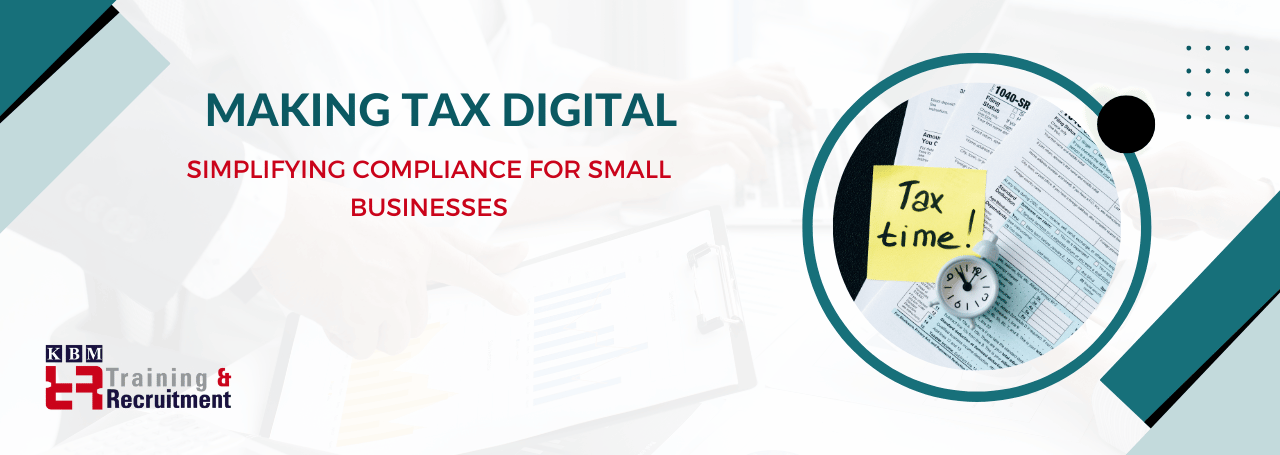Making Tax Digital (MTD) is a government initiative to modernise the tax system for small businesses. The goal is to make tax reporting easier and more efficient through digital tools. Understanding MTD helps small businesses comply with new regulations and streamline their tax processes.
What is Making Tax Digital?
Making Tax Digital is a system HM Revenue and Customs (HMRC) introduced to move tax reporting online. It requires businesses to use digital tools to keep records and submit tax information. This shift aims to reduce errors and make tax reporting more straightforward.
Key benefits of Making Tax Digital
MTD offers several benefits for small businesses, including easier record-keeping, fewer errors, and faster processing times. Digital systems can help automate calculations and reminders, saving time and minimising the risk of mistakes.
Requirements for small businesses
Under MTD, small businesses must use compatible software to keep records and submit tax returns. This includes software for accounting, VAT, and other tax-related tasks. Ensuring your software meets MTD requirements is crucial for compliance.
Choosing the right digital tools
Selecting the right digital tools is essential for smooth compliance with MTD. Look for software which has the option to integrate with your current systems and provides features like real-time reporting and automatic updates. Popular choices include cloud-based accounting software and MTD-compliant apps.
Common challenges and solutions
Some small businesses may face challenges with MTD, such as adapting to new technology or ensuring data accuracy. Solutions include investing in training, seeking professional advice, and choosing user-friendly software that fits your business needs.
Impact on VAT reporting
MTD has specific requirements for VAT reporting. Businesses must submit VAT returns digitally using MTD-compliant software. This change simplifies the process and ensures accurate and timely VAT submissions.
Record-keeping under Making Tax Digital
MTD essentially requires businesses to keep digital records of their financial transactions. This means keeping electronic copies of invoices, receipts, and other relevant documents. Effective record-keeping helps ensure compliance and makes tax reporting more efficient.
Preparing for Making Tax Digital
Preparing for MTD involves reviewing your record-keeping practices and investing in compatible software. It's also helpful to stay informed about any updates or changes to MTD regulations. Planning ensures a smooth transition and avoids last-minute issues.
Benefits of digital record-keeping
Digital record-keeping under MTD provides several advantages, such as more accessible financial information, better organisation, and reduced paper storage. It also enables more efficient report generation and tracking of financial performance.
Working with accountants and advisors
Collaborating with accountants and tax advisors can help you navigate MTD requirements and optimise your digital processes. They can provide:
- Guidance on selecting the right software
- Making the most of MTD benefits
- Ensuring compliance
Future developments in Making Tax Digital
MTD is part of a broader effort to modernise the tax system. Future developments may include additional digital requirements or expanded services. Staying updated on these changes helps you adapt and continue to benefit from MTD.
The Bottom Line
Making Tax Digital aims to simplify tax compliance for small businesses by moving tax reporting online. By understanding MTD requirements, choosing the right digital tools, and preparing effectively, small businesses can streamline their tax processes and enjoy the benefits of modernised record-keeping. Being proactive in adapting to MTD ensures smoother compliance and improved efficiency.






















